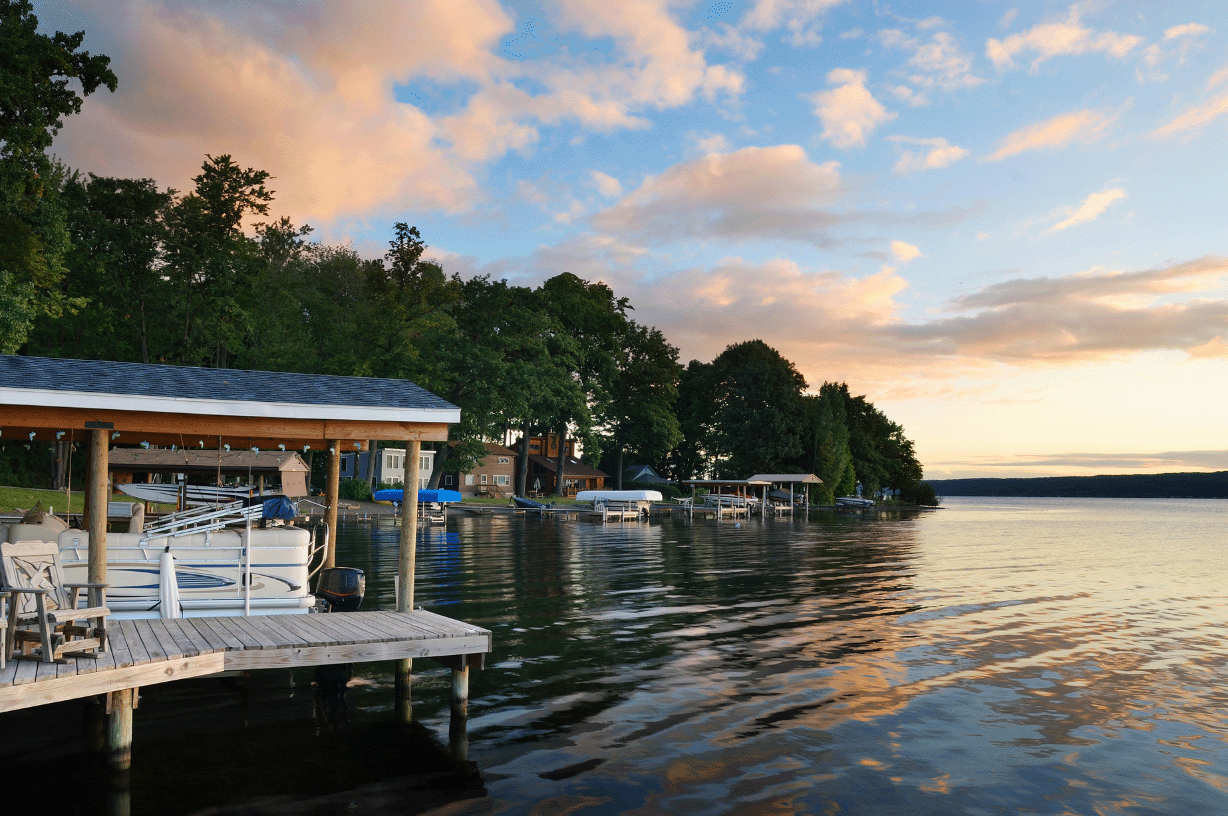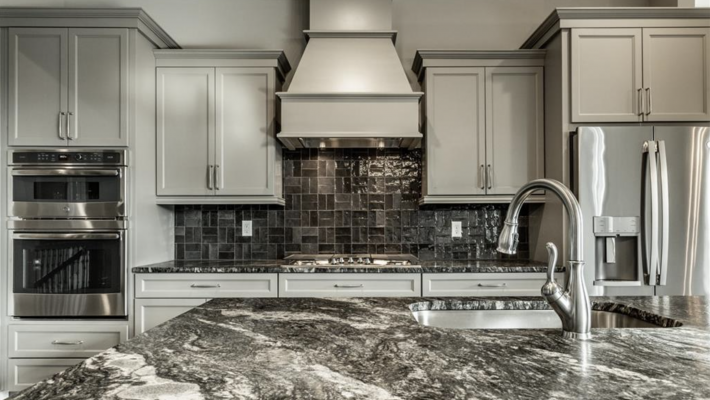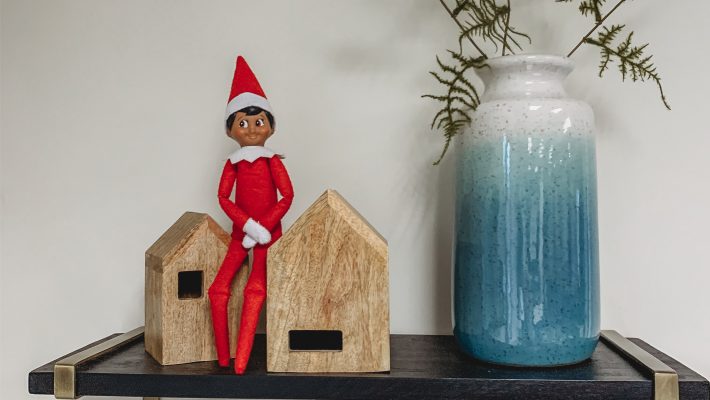Whether you envision living in a rustic cabin on an isolated lake or a luxury home situated near one of the area’s most popular waterfront locations, you’re far from alone.
There’s something incredibly alluring about the idea of being able to stroll out your back door and right up to a pier where you can fish, take a boat ride, swim or just settle back and watch the sun go down over the water. But waterfront property isn’t without its challenges.
Before you set your heart on buying a home on a lake, it’s smart to take a good look at both the benefits and drawbacks you may encounter.
What Are the Main Benefits of a Lakefront Home?
The benefits come down to two basic things: a solid financial investment and a great place to live. If you would rather spend your time by the water than anywhere else, a home on a lake is nothing short of perfection for you.
The mental and physical benefits of living where you have easy access to the natural world and plenty of fresh air and exercise can be tremendous. If you’re fond of fishing or boating, you can indulge in your hobbies pretty much any time that you want.
Lakefront property is also a pretty sound investment for the future (if you choose carefully). If you buy into an area that’s just starting to be developed or you score a home in an area that’s already “hot,” you stand a very good chance of seeing the property value rise considerably during your lifetime. That’s great if you think of your home as an investment.
What Are the Drawbacks of a Lakefront Home?
Unfortunately, the “cons” of owning a waterfront property can be bigger than you might expect. They include:
1. Rules, regulations and homeowners associations
A lot of lakefront properties are under the dominion of HOAs that rule with an iron hand. You need to know exactly what sort of restrictions come with the property, including what you can build, how water use might be limited, whether you can fish and what kinds of boats are able to be used (and more).
Don’t assume that you have carte blanche to do as you please with your property after you buy it, either. You may be very limited in what you can build. It could be a hassle to even get permission for the little dock you envision at the end of your yard or a storage unit if the HOA is very restrictive.
2. Safety issues, seawalls and climate change
Is there a seawall, retaining wall or bulkhead that protects the property from damage? How well is it maintained? Is the water eroding the land around the property? Has the waterline risen over the last few years? How well are the property and land likely to withstand the rigors of climate change?
You don’t want your investment to literally fall into the lake or be subject to flooding in a decade or so. It may be wise to engage an expert to make sure that the property is sustainable for the future.
3. Location, atmosphere and amenities
No two lake communities are exactly alike, so it’s wise to look for the right location before you try to find the right home. If you’re looking for peaceful seclusion on the edge of a lake where you only occasionally see your neighbors, you aren’t going to be happy living in an area that explodes with tourists every summer and erodes your privacy.
Ask lots of questions about the way the atmosphere of the place changes throughout the seasons and check out the amenities and culture in any nearby towns to make sure that you would be happy living nearby.
4. Upfront costs, insurance and upkeep
One major drawback to buying a property on a lake is the additional cost. You could be looking at much less home for your dollars than you could buy elsewhere, simply because of the lake’s proximity.
But that’s not the only expense you’ll have to consider: Insurance can be very pricey for waterfront properties of any kind. Most regular home insurance policies don’t cover flood damage, and all it takes is one major storm to wreak havoc with the water table. You may be mandated to carry flood insurance through FEMA or another qualifying provider.
Upkeep on a lake house can also be expensive. Water and humidity, storms and wind are all destructive to homes, so you have to constantly have your property inspected and stay on top of repairs. This goes double for outdoor fixtures, like retaining walls and docks.
What’s the Bottom Line on Lakefront Homes?
They can be the ultimate dream home for folks that really love the water, but it’s wise to temper any romanticism you may have about an idyllic, carefree existence with the realities that come with waterfront living.
That doesn’t mean you should rule out a lake home automatically. It’s just wise to remember that a great view and easy access to a beautiful lake might not be enough to offset the upkeep expenses and additional costs associated with maintaining a waterfront property.
In the end, there are trade-offs that have to be made, but that’s true of almost any property you want to buy. You just have to make sure that you go into the deal with your eyes wide open to any problems. Working with an experienced real estate professional can help you decide if a lake house is a solid investment for the future.
amanda.phillips@talktotucker.combill.ingram@talktotucker.combrad.layton@talktotucker.comeditors-pickerina.pribyshchuk@talktotucker.comfeaturedlloyd.zimmerman@talktotucker.commark.callahan@talktotucker.commary.layton@talktotucker.compriscila.hale@talktotucker.comterri.mcgraw@talktotucker.com




